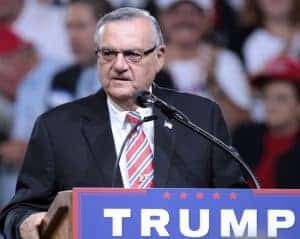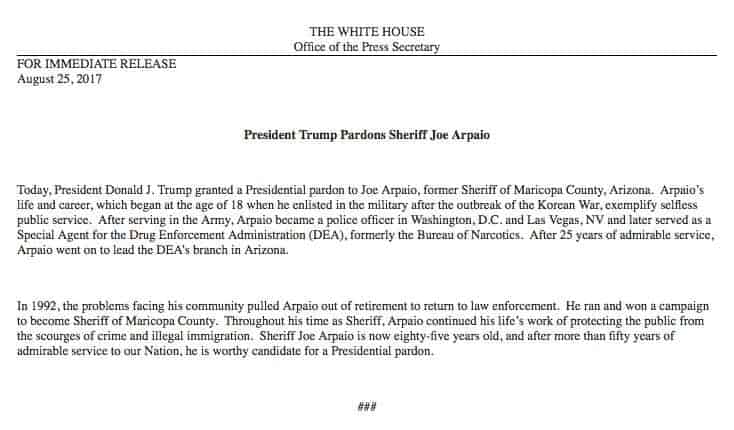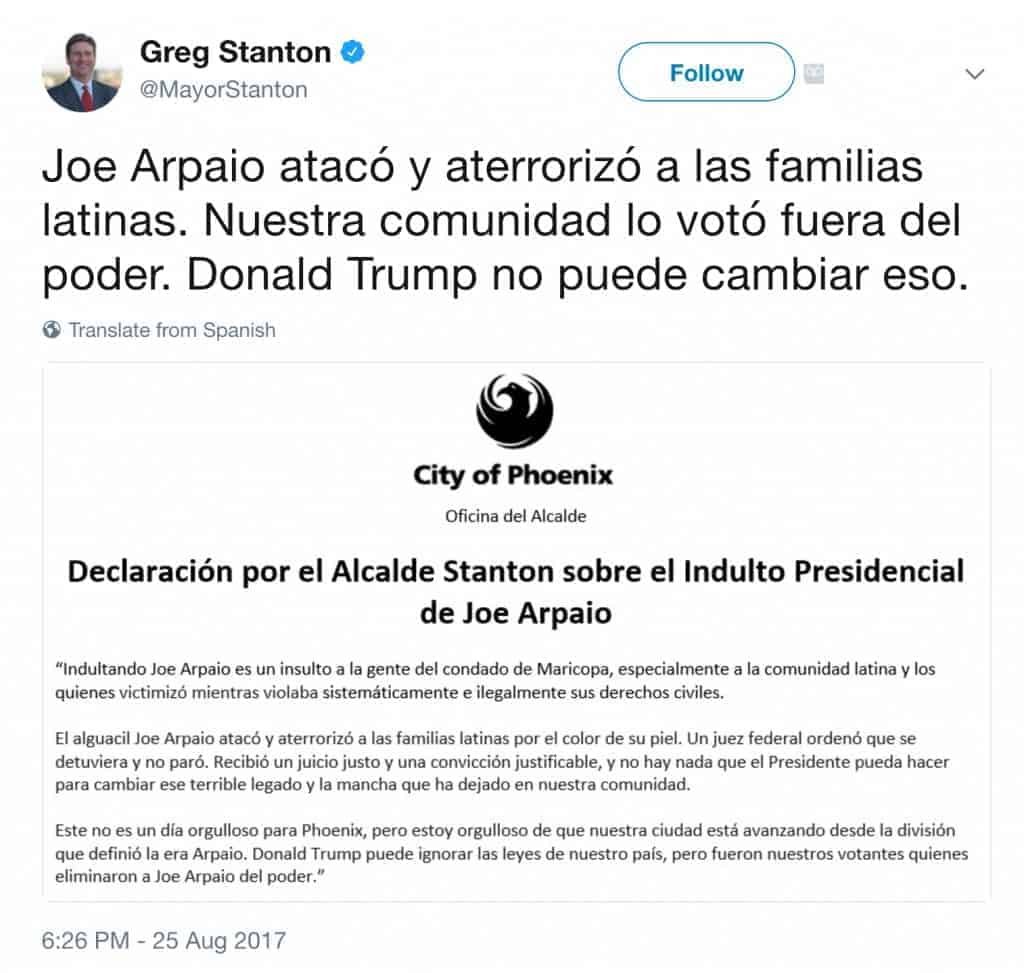
President Donald Trump today granted a presidential pardon to Joe Arpaio, the controversial former sheriff of Maricopa County, Arizona - less than a month since he was found guilty of criminal contempt for disobeying a federal judge's order in a case involving racial profiling of Latino immigrants.
Arpaio, 85, the son of Italian immigrants, was scheduled to be sentenced Oct. 5. He was facing a six-month jail sentence, plus a fine.
But that changed with President Trump's pardon announced today by the White House.
In a statement, Trump asserted that Arpaio, "after more than 50 years of admirable service to our nation, is a deserving candidate for a presidential pardon."
This is the official statement from the White House:
Phoenix, Arizona Mayor Greg Stanton responded to the President's decision as follows: "Joe Arpaio targeted and terrorized Latino families. Our community voted him out of power. Donald Trump can't change that."
The criminal conviction against Arpaio stemmed from a 2007 lawsuit that accused the sheriff's office of violating the rights of Latinos by detaining people without cause, based solely on the suspicion that they were in the country illegally, and then turning them over to immigration authorities.
In 2011, U.S. District Judge G. Murray Snow banned Arpaio detain people on suspicion of immigration status if he had no evidence that they had committed a crime or broken the law. Arpaio ignored the order, stating that he would continue to make the arrests.
On July 31, U.S. District Judge Susan Bolton found Arpaio guilty of defying the judge's order issued in 2011.
Presidential Power to Grant Pardons and Pardons
The U.S. Constitution grants the President the power to pardon and pardon federal crimes. Specifically, Article 2, Section 2 of the Constitution provides that the President "shall have power to suspend the execution of sentences and grant pardons for offenses against the United States, except in cases of Impeachment."
Several U.S. presidents in the past have exercised their right to pardon and pardon individuals found guilty of federal crimes, including drug trafficking, armed robbery, arson and money laundering. Click on the links below to see the list of pardons and pardons issued by some of the country's former presidents:


